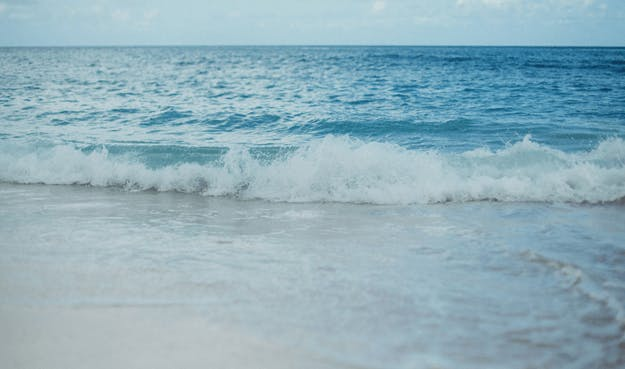
Ahh, Florida! The Sunshine State is perhaps best known for its glorious palm trees, its seemingly endless beaches, and it’s almost unforgivably beautiful weather. But the state is still rich in history and the wonder of the tropics. Anyone with a strong desire to escape the tourist trappings of Disney World and Miami need only immerse themselves in the state’s historic forts, or take a safari through the Everglades. But no amount of sharks or alligators can save Florida from the reality that exists in all popular and well-populated states: crime. And while property crime rates in Florida are not horrendously above the national average, your chances of becoming a property crime victim in America’s favorite vacation spot is 1 in 29. If you’re a visitor to Florida, you may be fine with taking your chances, but for current residents this is a number you may not want to ignore. Attaining home security in Florida is particularly important, especially if you want to keep your favorite surfboard away from thieving hands.
Home Security Provider Requirements for Florida
While you’re away hitting the beach and getting a tan, burglars may well be casing your home for their next big adventure. There were over 600,000 property crimes in Florida in 2015. While many of these involved properties that weren’t lovingly purchased homes, a fairly large number of them were indeed home burglaries. Thankfully, Florida has joined the bandwagon, adopting some fairly important standards on home security providers.
Part of Florida’s regulation on businesses includes a chapter that specifies “Electrical and Alarm System Contracting”. There are 29 individual sections in this chapter (yes, we counted), many of which provide some tantalizing details for those that wring their hands with glee at the thought of home security providers having to actually follow rules. Among the goodies that you will find within this law is this fully-loaded statement:
Do you see that, Floridians? Your legislators do care about you! Very much! Enough to want to protect you from unlicensed home security providers attempting to rob you blind.
There are also some very common statements in this law, ones that you will find in many other states. Much like your neighbors in Georgia, Florida requires any person doing electrical work in someone’s home to be a fully licensed electrician. This include, you guessed it, the installation of home security equipment. And much like Illinois far to the northwest, Florida has some very specific requirements on who is allowed to get a license to install alarm systems in someone’s home. You’ll find that the fully-certified contractors installing home security systems in your home must be: a) at least 18 years old (thank the stars) and b) be of good moral character. There are some other very specific requirements as well, including how long the individual has been employed in the business, and how many years of formal training he or she has received. But that’s almost a given. The real complication here is related to what defines a “good moral character”. Further down, the law defines moral character as “personal history of honesty, fairness, and respect for the rights of others and for laws of this state and nation.”
So there you have it, Florida. Not only can you expect your providers to put only skilled laborers in your house, you can expect them to be law-abiding 18 year olds with good attitudes! That’s probably a bit of an exaggeration. The most likely scenario is that, for Florida, all personnel doing work directly on your home will have many years of experience and have a very trustworthy background. In this sense, Florida has very solid requirements for some of the more important aspects related to home security.
The list of requirements goes on, of course. Florida has crafted one of the most detailed regulations in the industry, bested only, perhaps, by Texas. Those wishing to do contract work as an alarm company have to pass fairly stringent tests by the state’s regulatory board. This grants the home security provider a certificate that enables them to do business. However, that certificate does expire. Contractors must take continuing education classes, including a 2-hour course on false alarm prevention. There are even restrictions on hiring people who have criminal records related to property crime.
The documentation in this law is very dense, so if you do have lots of vacation time and you find yourself lounging on the beach with no good books to read, it may make for some “light” reading. Otherwise, just note that home security providers in Florida are regulated to the teeth. There’s nothing the state government did not think of and quite a few hoops these businesses have to jump through before they can even begin soliciting money from your nervous hands.
Using Home Security Cameras in Florida
We have one, easy answer for you regarding home security cameras in Florida: YES. If you want to bow down to the wise legislators in your state, you may do so now. Florida has very tight voyeurism laws, which do result in felony charges. However, two small lines in the state’s statute on voyeurism completely save the day:
“This section does not apply to any:..Security system when a written notice is conspicuously posted on the premises stating that a video surveillance system has been installed for the purpose of security for the premises; Video surveillance device that is installed in such a manner that the presence of the device is clearly and immediately obvious.”
Yes, indeed. Get out the champagne! Then, put up your security cameras wherever you want (within reason, of course). Florida is one of only a few states that we have seen that provide this specific stipulation. In this case, it makes Florida very much like Washington D.C. in providing homeowners a way out of getting charged in the situation where someone just happens to get naked on your security camera against your personal desire.
Still, it’s important to note that those voyeurism laws are fairly strict, and you should be wary about installing cameras that have voice pick-up. Like most states, Florida still has rather archaic wiretapping laws on the books that could easily be misconstrued by an overzealous prosecutor. And to avoid any real confusion, you should always make sure that your security cameras are pointed away from any of your neighbors’ windows. Your best bet is to keep your security cameras pointed toward your own house or the street. For indoor cameras, you will want to keep them out of any rooms where a guest in your home may be undressing and revealing any unmentionable parts of their body. Despite the protections in the law, you may be on very shaky ground by installing cameras in locations where it would appear that you’re simply trying to catch someone in a state of undress.
But we are sure we can trust our neighbors in Florida to follow the laws respectfully, right? Have a field day with your security cameras! Those of you in Florida can count yourself lucky to live in a state that encourages you to protect yourselves from burglars with home security cameras.
Safety During Natural Disasters
Every Floridian knows that there’s a dark side to the glorious weather. Every year, weather patterns churn away in the water, creating powerful storms that far-too-often set their evil eye on America’s favorite peninsula. Due to its flat geography, this makes Florida extremely prone to flooding as well. The entire structure of the state makes it a worst-case-scenario for powerful storms. Thankfully, the commonality of these storms has led Florida and Floridians to be much more prepared than many of their neighbors to the north. Hurricane Sandy may have wreaked devastation along the Northeastern seaboard, but Florida squeaked by with what amounted to just a scratch.
Nevertheless, hubris can get to us all. It’s important to remember that even for a Floridian, hurricanes can be unpredictable. Wind speeds can ramp up. Floods can occur. Nature’s fury can be wholly unforgiving. It’s best to protect yourself in the case of a storm. For hurricanes in particular, you will want to ensure you have all of the necessary emergency items. Keep extra food, clothing, water and flashlights ready and available. Hurricanes tend to knock out power, so you may want to invest in a portable generator. Solar powered generators will run for a long time without needing to be recharged, but their power output is minimal. Gas or diesel generators will offer you the most continuous power output, but once the fuel runs out, you may be out of luck until the gas stations have their power restored. If the roads are blocked, you may have even more concerns.
During a hurricane, try to stay at the lowest level of your house. Avoid windows, as hurricane-force winds can knock out glass and hurl large objects through windows. Stay behind and under heavy objects and furniture for protection. If you have a storm cellar, use it. But keep an eye out for flooding. The last place you want to be during a flood is stuck underground in a storm shelter. Hurricanes can be tricky monsters, acting both like a tornado in some cases, and heavy flood rains in others. It makes surviving a very bad storm immensely difficult, particularly if you are unprepared. But as a Florida native, we won’t worry. You’ve done all this before.
Home security in Florida is an essential part of life. While the state may be the best place to live if you love a good tan, it’s also increasingly dangerous for those who like to hold onto their personal items. Burglars are fast learning that Floridians prefer to spend their time away from home, making the state a bit of a paradise for thieves. But at least the state government has your back! Put up those security cameras and contact a good home security provider. You’ll be able to rest out on the beach all day with some peace of mind.

